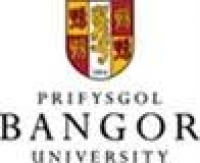The MRes programme will provide a dedicated route for high caliber students who (may have a specific research aim in mind and) are ready to carry out independent research leading to PhD level study. Alternatively it would be appropriate for students who are seeking a stand-alone research based qualification suitable for a career in research with transferable skills for graduate employment.
Core Modules:
Research and Development in Medical Science: The requisite skills necessary for medical research needed by the clinician involves not only core research skills, but the ability to organise and plan research, secure funding in a competitive arena, acquire ethical approval from the NHS to conduct studies, and present the findings of that research to a wider audience. These skills will be particularly aimed at those practicing within the clinical setting, and from medical educators with practical experience in this area. Students will be expected to already have a basic understanding of the various approaches employed in medical research, such as the ability to critically evaluate current research, and the importance of experimental design in clinical research. The module will seek to ensure that participants will have the skills and knowledge necessary for every stage of a research project, in the planning, application, and presentation of research.
Ethics, Medicine & Law: The rapid advancement in medical treatments and science is often a challenge to the legal and ethical codes and guidelines for medical practice and the governing bodies regulating public health. As a result, such research is increasingly becoming an important issue, attracting considerable media and public interest. It is therefore of increasing value for clinicians and medical professionals at the forefront of medical development to be able to understand and grasp the issues affecting medical ethics, and is also an important part in forming good clinical practice and research skills. These skills also compliment sound decision-making, communication, and effectiveness.
The aim of the Module is to examine and discuss topic-specific areas over the course of the module where the interface between the law and medical practice is of importance. This will draw together the different aspects of ethics, medicine, and law, including basic ethical principles and key legal concepts relating to, among others, personhood, autonomy, human rights, sanctity of life, and quality of life. Once the key concepts have been explained thoroughly, discussions on difficult cases will assess the courses of action to take, and the consequences of such action. Over the course of these discussions, it should be apparent how medical practitioners are required to make complex decisions in balancing various ethical, legal, and medical considerations on determining patient treatment.
Evidence based healthcare in practice: There has been increasing awareness over the last three decades of the need for clinicians to make healthcare decisions based on concrete evidence. In fact, following the adoption of clinical governance framework by the NHS this has become a fundamental cornerstone of good clinical practice within the UK national health service. The aim of this module is aimed at healthcare professionals who wish to adopt and practice the principles of evidence based care in their clinical practice. By utilising real-life scenarios this module will introduce participants to the steps of formulating research questions, searching for an appraising best research evidence and also familiarise them with basic statistical issues in the planning and analysis of research: data distribution, p value, confidence interval, odds ratio, relative risk, numbers needed to treat, sample size estimation, Type 1 and type 2 error, common hypothesis tests, etc. The aim of the module will be to provide professionals with a deep understanding of the principles of evidence based practice and provide them with resources so that they can continue to develop their own interests through continuous and independent study.
Research Project: The research project is the ‘heart’ of the MRes and is an intensive research experience conducted in collaboration with your supervisor that allows you to put your knowledge and skills into practice. In conducting your thesis project, you will develop new skills such as planning, co-operative working, and the academic skills essential to understanding and reporting findings to others. Please note, assessment is primarily aimed at the Research project, as this is worth 120 credits, whereas the taught element counts for 60 credits (this is the opposite to our MSc / MA courses, where teaching is worth 120 credits, and the research project is 60 credits).


